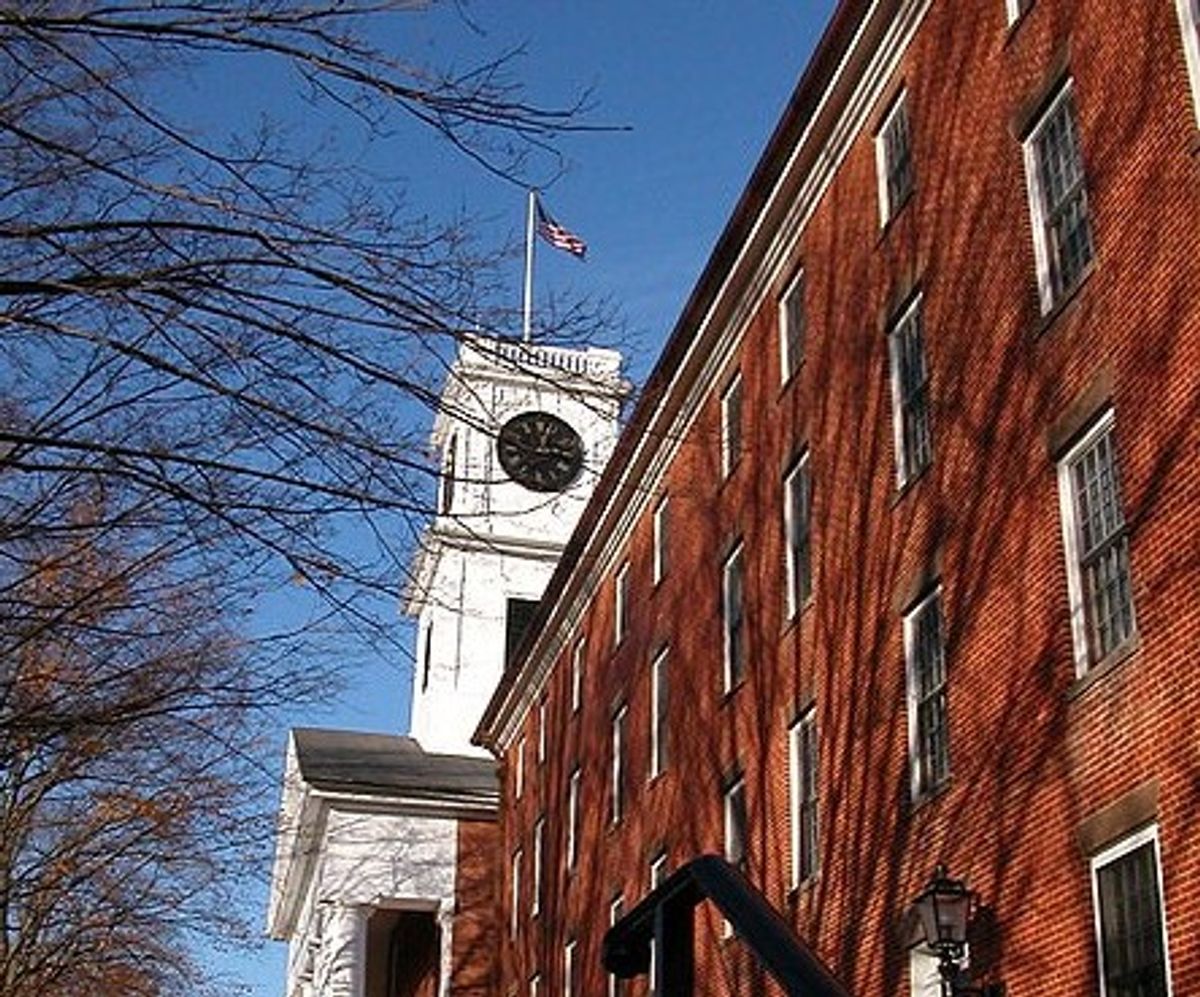A former Amherst student detailed her experience of on-campus rape and the college's abysmal treatment of the situation, in a searing and painful essay. The piece in the Amherst Student by Angie Epifano, who left the college because of her experience, has focused a national spotlight on the elite liberal university's treatment of rape and rape culture, raising questions about the treatment of sexual assault, victims and perpetrators on campuses around the country.
In her piece prefaced with a trigger warning, Epifano writes about the trauma following her rape by a college acquaintance:
Some nights I can still hear the sounds of his roommates on the other side of the door, unknowingly talking and joking as I was held down; it is far from a pleasant wakeup call.
I had always fancied myself a strong, no-nonsense woman, whose intense independence was cultivated by seventeen harrowing years of emotional abuse in my backwoods home. May 25th temporarily shattered that self-image and left me feeling like the broken victim that I had never wanted to be.
Everything I had believed myself to be was gone in 30 minutes.
In an attempt to push the incident from her mind, Epifano explains that she did not report the assault immediately but only came forward to the school's sexual assault counselor after she had to countenance her rapist in a fundraising project and was thrown into severe emotional turmoil. Epifano's account of her treatment by the school's counseling service is as disturbing as any part of her harrowing story.
In short I was told: No you can’t change dorms, there are too many students right now. Pressing charges would be useless, he’s about to graduate, there’s not much we can do. Are you SURE it was rape? It might have just been a bad hookup…You should forgive and forget.
How are you supposed to forget the worst night of your life?... I was continuously told that I had to forgive him, that I was crazy for being scared on campus, and that there was nothing that could be done. They told me: We can report your rape as a statistic, you know for records, but I don’t recommend that you go through a disciplinary hearing. It would be you, a faculty advisor of your choice, him, and a faculty advisor of his choice in a room where you would be trying to prove that he raped you. You have no physical evidence, it wouldn’t get you very far to do this.
Epifano recounts how when she expressed a suicidal thought to her counselor, she was immediately committed to the local hospital's psychiatric ward for five days where she says the doctor was no more supportive. "I really don’t think that a school like Amherst would allow you to be raped. And why didn’t you tell anybody?" she recalls the doctor suggesting. Epifano describes a rape by a student and an ongoing abuse by an institution. Eventually she withdrew from Amherst and remains sickened by the administration's refusal to take rape seriously. She writes (citing unofficial statistics):
Amherst has almost 1800 students; last year alone there were a minimum of 10 sexual assaults on campus. In the past 15 years there have been multiple serial rapists, men who raped more than five girls, according to the sexual assault counselor. Rapists are given less punishment than students caught stealing. Survivors are often forced to take time off, while rapists are allowed to stay on campus. If a rapist is about to graduate, their punishment is often that they receive their diploma two years late.
I eventually reported my rapist.
He graduated with honors.
I will not graduate from Amherst.
As Jezebel reported, Epifano's story follows on the heels of another Amherst incident, which portrayed the liberal college as a hotbed of rape culture. A secret fraternity produced T-shirts for a party showing a cartoon woman beaten, bound and spit roasting over a fire. Before a student blog post drew wider attention to the issue, the administration responded to the T-shirts only with closed-door small meetings and "'boys-will-be-boys' comments," according to the blogger.
Jezebel adds that, following Epifano's essay, Amherst's college president has issued a statement: "Clearly, the administration's responses to reports have left survivors feeling that they were badly served. That must change, and change immediately," said president Carolyn Martin.
This recent dim spotlight on rape and rape apologists at Amherst -- a self-identifying liberal institution -- points to a national problem. Take Back the Night estimates that one in four female undergraduates will be sexually assaulted at college, while a rape occurs on average every 21 hours on some U.S. college campus.

Shares